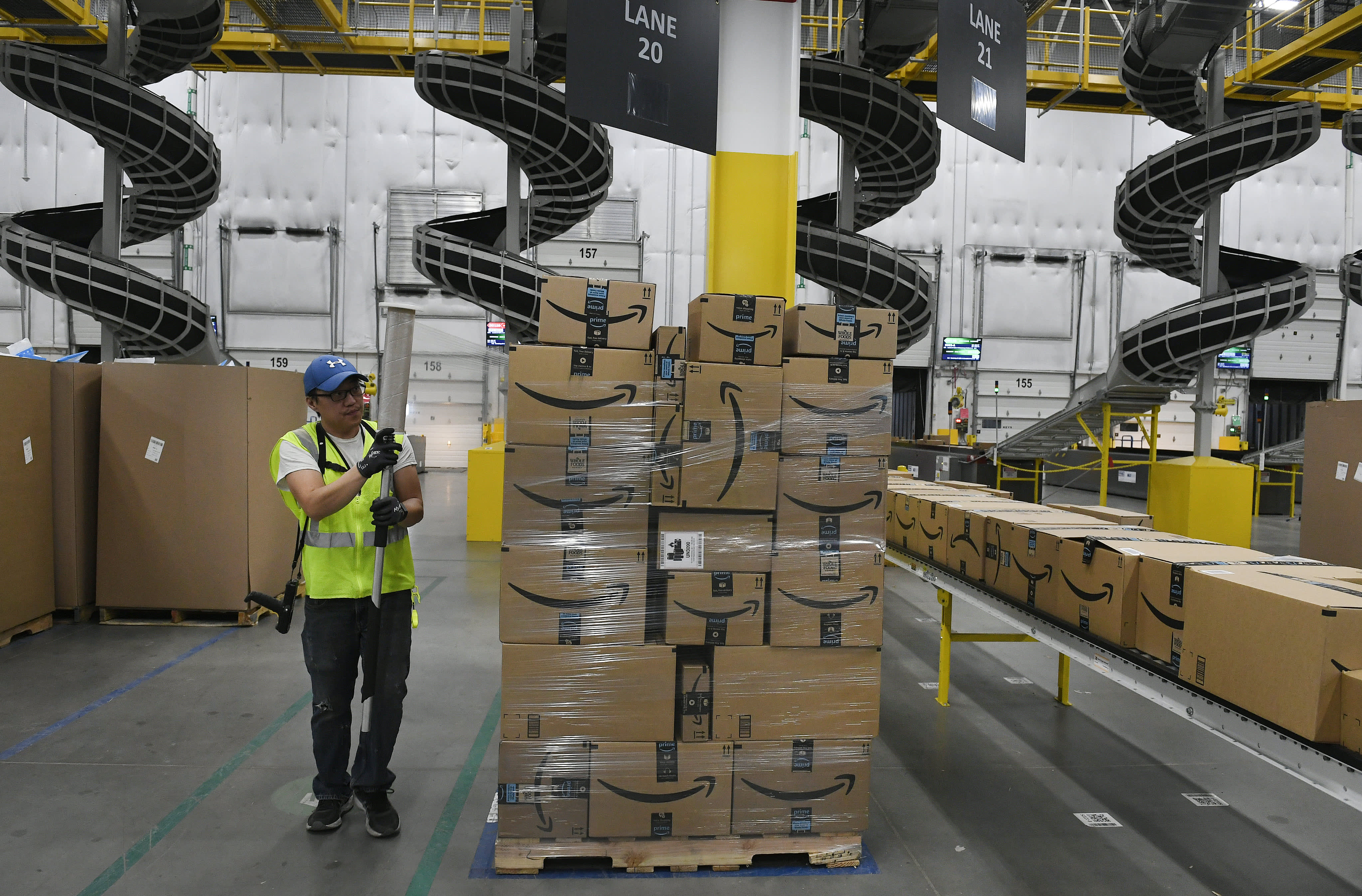Amazon sellers in the U.S. will have to list their names and addresses

Billie Her, a warehouse associate, wraps plastic around a pallet of boxes at Amazon's Fulfillment Center in Thornton, Colorado.
Helen H. Richardson| The Denver Post | Getty Images
Amazon will soon require third-party sellers in the U.S. marketplace to display their business name and address on their public-facing profiles.
The change will take effect starting Sept. 1, according to a notice sent to sellers on Wednesday. Sellers are already required to supply this information to Amazon, but the new policy will make it available to consumers, allowing them to better vet third-party merchants and their products prior to purchase.
Amazon's marketplace, launched in 2000, now accounts for more than half of the company's overall sales. While it remains a crucial component of Amazon's business, the marketplace has also faced a number of issues related to the sale of counterfeit, unsafe and expired goods. Listing seller information on the U.S. marketplace could help consumers track down third-party sellers who they suspect to be selling counterfeit or unsafe items. It could also help serve brands that are trying to spot unauthorized sellers of their products.
"We are making this change to ensure there is a consistent baseline of seller information to help customers make informed shopping decisions," the notice to sellers states.
Amazon already requires sellers in Europe, Japan and Mexico to share their business name and address.
Amazon has long required sellers in Europe, Mexico and Japan to display their business name and address publicly. With Wednesday's announcement, Amazon will require sellers in its largest marketplace worldwide to provide this information. Amazon has more than 2 million sellers globally and 461,000 active sellers are based in the U.S., according to e-commerce research firm Marketplace Pulse.
In recent years, Amazon has launched a number of programs to crack down on counterfeit and unsafe goods, but lawmakers and the Trump administration continue to press the company on these issues. In January, the Department of Homeland Security released a report on combating counterfeits, which included a number of recommendations for e-commerce companies like Amazon, such as enhancing third-party vetting processes by requiring various forms of identification.
"Brands that are trying to enforce approved retailers, chasing counterfeits, will see a legal entity to go after," said Juozas Kaziukenas, who runs Marketplace Pulse. "Previously obtaining that information from Amazon was a long process."
Source
Check Our More
No comments